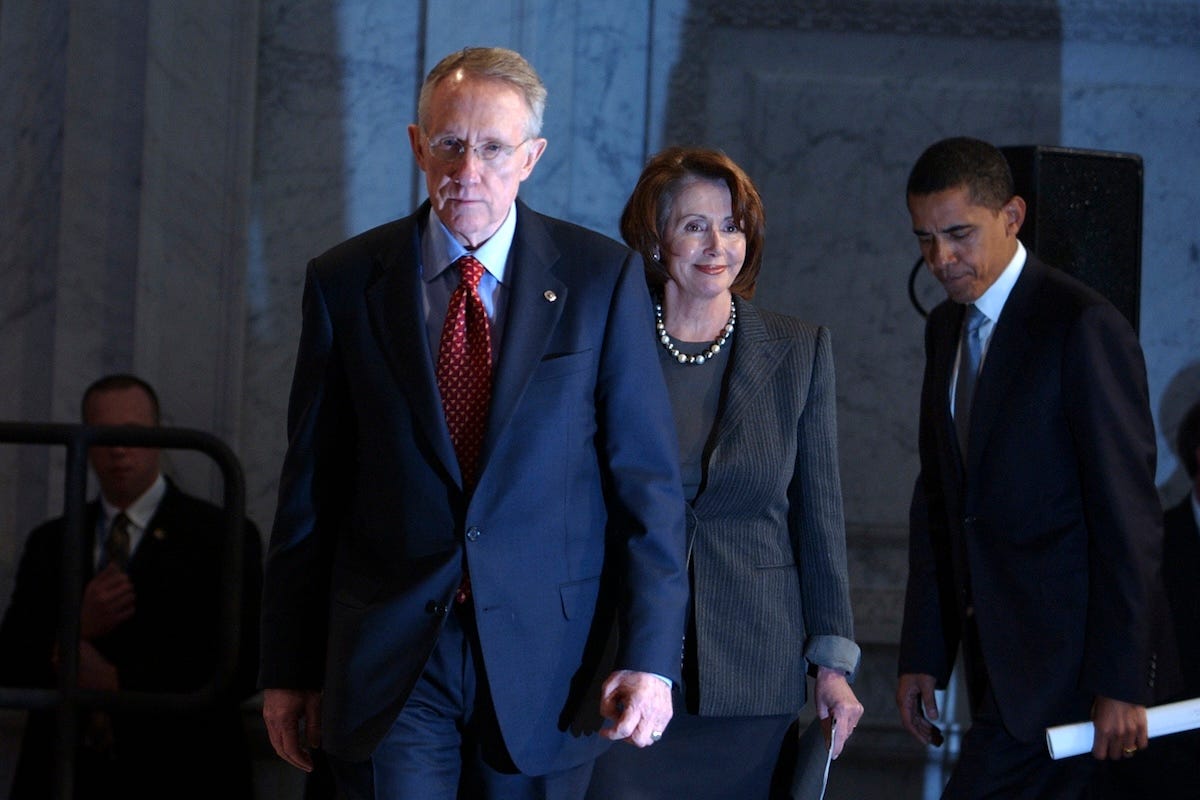The Democrats' 2005 Dilemma
If you could stop MAGA, but only by turning back the arrow of progress, would you?

The year 2005 looms large if invisibly in the liberal imagination 20 years later, as U.S. democracy teeters.
You have to go back that far to find Democrats and the broad left as demoralized as they are today, suffering such a crisis of confidence. At the same time, 2005 turned out to be a nadir, a rut the party quickly escaped en route to successive landslide victories that, for a brief moment, plunged the GOP into an extinction-level crisis.
Precisely because Democrats bounced back from defeat in 2004, though, the mid aughts have become a reference point for many in the party as they think about how to broaden their appeal today. The last time Democrats were able to predictably carry national elections by wide margins wasn’t that long ago, but the country was quite different:
Democrats as a whole were less progressive and ambitious than they are today—or than they have been in elections since.
At the same time, their winning streak began only after the emergence and maturing of an online activist movement, which pressured Democrats to be more pugilistic, and more ideological.
Democrats reached their high-water mark amid failed wars and the economic collapse at the end of the George W. Bush presidency, under the aegis of Barack Obama.
You can read this miniature history to support just about any course of action today: Maybe Democrats need to dial back the ideological clock a decade or two. Maybe they need to become more fearlessly oppositional. Maybe it’s all in the hands of fate and circumstance.
The possibility that Democrats polarized themselves into minority status is a live one, though, and it got me thinking about collective sacrifice, which now confronts tens of millions of Americans fighting to save the country from collapse. At this juncture, defeating fascism in America will be costly. It has already cost the country a great deal. Limiting further slippage will drain our time, resources, and liberties, much as treading water expends energy in an unsustainable way: You can’t do it forever, but if you don’t do it at all, you’ll drown quickly.
Now imagine we could skip all that, and defeat the threat in one fell swoop—but on an important condition: That the political status quo in the U.S. would revert to something like it was 20 years ago. No more fascist regime, no more contemplating decades lost to the collapse of constitutional order. But the cost would be erasing two decades of progress, wherever progress has been made, and starting over? Would you take that deal?
CHEAT THE CLOCK
I submit that as a discussion question for everyone reading.
I think I would. Our present course likely leads somewhere much bleaker than 2005-style American liberalism. But it is a terrible dilemma, and if you use your moral imagination (or your actual memories of 20 years ago) you can understand why the Democratic Party isn’t already on the ideological backslide.

